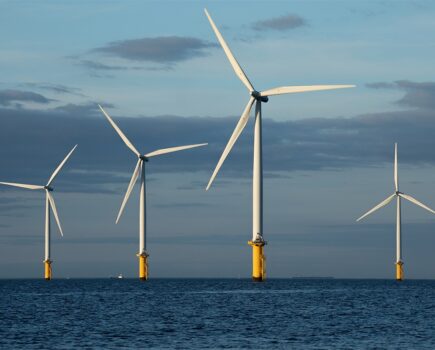Minister told to engage with industry
The devastation caused to all sectors of the fishing industry in all regions by the Brexit deal was spelled out in stark detail by MPs in a Westminster fisheries debate last week, reports Tim Oliver.
The debate – the first in Westminster on the impact of Brexit since the deal was agreed – was secured by Orkney and Shetland MP Alistair Carmichael (pictured above), who said he was ‘astonished’ by the volume of complaints he had received from all sectors and regions when he asked for evidence of problems ahead of the debate.
Fisheries minister Victoria Prentis heard a wide range of fishing industry concerns including new trade barriers, quota shortages, lack of access to workers, safety problems with non-local boats around Shetland, and a general lack of support for the industry.
Mr Carmichael called on the government to hold round-table meetings with the industry, and challenged it to engage with a report he is collating of replies to his call for evidence. He said the Brexit deal was not what was promised and was causing ‘massive problems’.
“In coastal and island communities around the country, the anger and frustration felt by fishermen is almost palpable. They feel let down and used and they want answers,” Alistair Carmichael told the minister and MPs.
He quoted one Shetland skipper who ‘spoke for many’ who had asked: “Why are we still using the broken quota system the EU put in place now that we are an independent coastal state?” He said there was more cod now around Shetland than at ‘any time in living memory, but our quota is minuscule’ – and there are plans to cut it further in 2022.
Another young Shetland fisherman had asked: “Why is the fishing industry having to fight their own government for survival?”
At St Mawes in Cornwall, a skipper who had fished from there for 40 years told Mr Carmichael that there were 18 boats there when he started with two or three crew, and there were now only two trawlers, both working single-handed.
Mr Carmichael said that an ‘unbelievably weak government has put us in a worse position than before’ and failed to keep foreign vessels out to at least 12 miles.
Exporters had experienced ‘a catastrophic gridlock’ at the start of the year, and processors had also been badly hit because they could not source the labour they need.
The catching sector had lost easy access to in-year quota swaps, and it was still not known how the new system would work.
The need for extra quota was more urgent ‘with every week that passes’.
“Another theme that came through loud and clear from fishermen in every part of the country was their unhappiness at the inequality of treatment when it comes to at-sea boardings by fisheries enforcement officers,” said Alistair Carmichael.
Figures from Marine Scotland released under Freedom of Information requests ‘show a massive disparity between the approach to UK boats and the French and Spanish fleets who are allowed to go about their business unmolested’, and the situation was the same around the coast.
Alistair Carmichael said the extent of gill-netting off Shetland was ‘environmental lunacy’ and ‘just about the most unsustainable form of fisheries imaginable’. “It contributes massively to the problem of plastic pollution in our oceans, and excludes local boats from being able to fish several square miles of waters that have traditionally been some of their best grounds. For years we were told that this was something that we had to live with as part of the CFP. That no longer applies, so why do we still allow it?” he asked.
He said he had urged the minister when the Fisheries Act was passed to give powers to the MCA to police the waters in the UK EEA between 12 miles and the 200-mile limit, but the situation was getting worse.
“Is it going to require a boat to go to the bottom of the sea before someone takes responsibility and acts?” he asked.
He called on the minister to sit down with MPs and industry representatives and to ‘listen to us and engage’.
“If not, then I fear that the anger and frustration that is in the industry is only going to grow. Our fishing industry still is one that has enormous potential, but to realise that potential requires political will. Do the minister and her colleagues have that?”
This story was taken from the latest issue of Fishing News. For more up-to-date and in-depth reports on the UK and Irish commercial fishing sector, subscribe to Fishing News here or buy the latest single issue for just £3.30 here.








